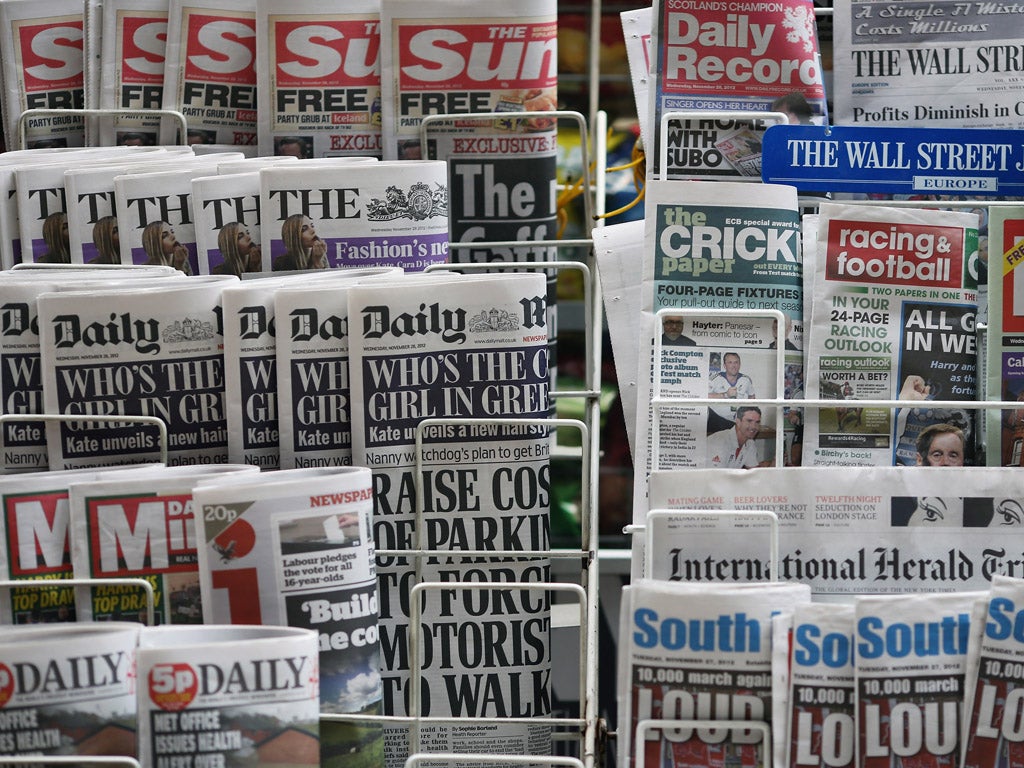If the law had been enforced properly, there would be no hacking scandal, Leveson Inquiry, or change in regulation. So why do we need new laws?
Our Letters Editor applies common sense and rationality to Leveson's findings

After Leveson we have an acrimonious debate between newspaper editors who favour self-regulation by the press and moralists who favour independent regulation backed by statute, as suggested by Leveson. Here’s a third idea – no regulation at all, just the enforcement of the law, which should apply to newspapers just as it does to everybody else.
A letter to the i-paper last week caught my eye. The correspondent criticised Chris Blackhurst, editor of The Independent, for failing, in his defence of press freedom, to show any “remorse” about the sins of newspapers. Hang on a minute, thinks I, what has he done to show remorse for? Neither he nor his newspaper has done anything wrong. We are being subjected to all this finger-wagging because of the sometimes vile behaviour of a bunch of ethical defectives on the red-tops, who are nothing to do with us. You might as well ask Waitrose to show “remorse” for the poor selection of bread on the bakery counter at our local Tesco.
A trade, not a profession
Why don’t we just admit that the Press Complaints Commission, like the Press Council before it, was a bad idea, and Leveson’s law-backed super-PCC is unlikely to be any better? Why don’t we just admit that journalism is a trade, not a profession? We are not each other’s moral guardians, and we don’t share a consensus about professional ethics. We are not lawyers or doctors, whose professional bodies have the power to license practitioners and kick out wrongdoers – and heaven forfend that any journalists’ “professional” body should ever behave like that. We are more like shopkeepers, offering our various wares to a wary and sceptical public.
But, I hear you cry, how are we to prevent abuses such as those disclosed in evidence before Leveson? Well, for my money, the most sensible evidence came from Ian Hislop, the editor of Private Eye. The burden of his argument was that we did not need an inquiry into press standards. All the things complained of are already against the law – hacking phones and bribing police officers are criminal offences; monstering people accused of crimes is contempt of court; libel and invasion of privacy are actionable in civil law. What we needed an inquiry into was why the law had not been enforced.
Well, as to the hacking, bribery and contempt, your guess is as good as mine. I suspect that the famous 1992 headline “It’s The Sun wot won it” might have a lot to do with it. After The Sun’s ruthless destruction of Neil Kinnock, we saw 20 years of abject fawning by Downing Street and the political class in general towards the tabloids and their proprietors . It is not surprising that in that time the police and successive Attorneys General may have shown less than exemplary zeal in holding newspapers to account. However, the recently revived vigour of the police over hacking and of the Attorney General in the Christopher Jefferies case suggest that those days are, mercifully, over.
A modest proposal
Over libel and privacy, I have a modest proposal. The problem here is as it always has been – the appalling cost of litigation in the High Court. This both deters people of modest means from seeking redress and makes it easy for rich litigants to bully the media into settling cases that should really be fought. I have never understood why 95 per cent of cases should not be heard by a circuit judge in the county court.
If existing law had been properly enforced there would have been no hacking scandal, no Leveson inquiry, and no new regulatory machinery. Why not just enforce it?
Join our commenting forum
Join thought-provoking conversations, follow other Independent readers and see their replies
Comments
Bookmark popover
Removed from bookmarks